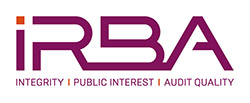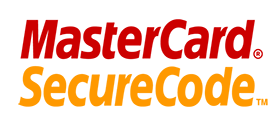IRBA 2024 Public Inspections Report Highlights Steady Improvement in Audit Quality
|
Johannesburg, Thursday, 3 April 2025 — The Independent Regulatory Board for Auditors (IRBA) has released its 2024 Public Inspections Report, highlighting important strides in audit quality across South African audit firms inspected. The report also presents the key deficiencies, themes and trends observed during the year’s inspections cycle. Says Imre Nagy, IRBA CEO: “As in previous years, the results indicate a continued focus on improving audit quality, with incremental improvements in several areas. While progress has been made by firms, recurring and new deficiency themes on firm-wide and engagement levels highlight those areas where further improvements are needed.” The content of the report is based on the results and matters reported from the inspections performed during the 2023/2024 cycle, as mandated by Section 47 of the Auditing Profession Act 26 of 2005 (as amended 2021) (APA) which requires the IRBA to regulate all registered audit firms and individual registered auditors. This act further requires IRBA to inspect or review the practice of a Registered Auditor (RA) that audits a public company at least once every three years. In the 2023/2024 inspections year, the IRBA continued to select firms and audit engagement files for inspection using a risk-based approach, in line with the International Forum of Independent Audit Regulators’ (IFIAR) core principles. This approach influences how firms, engagements, and sections (at both the engagement file and firm levels) are selected for an inspection. Also, the selection process is focussed mostly on audits with a higher public interest exposure and the audit firms that audit public interest entities. Where the audits of listed entities are performed by South African audit firms, more than 90 percent are performed by the ten largest audit firms or network firms, nine of which were scoped in for an inspection during the year. The inspections performed at these audit firms included firm-wide inspections of their systems of quality, engagement inspections and theme-based inspections. Theme-based inspections are a selection of engagement files, and/or other areas of focus to inspect specific themes, which could be firm-specific and/or be focused on risks or deficiencies noted across audit firms. The adoption of the International Standard on Quality Management (ISQM) 1 and 2 (ISQMs) in South Africa, effective as of 15 December 2022, resulted in audit firms changing how they view their systems of quality management (SOQMs) from a mere compliance measure to actively managing their businesses around audit quality to achieve quality objectives, thus requiring firms to demonstrate a strong commitment to quality management practices. The report highlights the following key areas:
While these are positive steps in the right direction, the report also identified some areas of deficiencies and areas for further improvement in the firms’ system of quality management. Amongst these are:
Says Nagy: “As a result of the deficiencies encountered in the inspections process, certain areas for improvement were identified by the report. These centred around some key principles of external audit that require attention.” Areas highlighted by the report for additional focus for improvement include:
Nagy concluded: "“The report also reflects the IRBA's unwavering commitment to enhancing audit practices and protecting the public interest through rigorous inspections and proactive remediation efforts with the audit firms. As we look ahead, we remain committed to maintaining high standards of audit quality and collaborating with stakeholders to tackle emerging challenges. The IRBA will continue to support audit firms in their remediation efforts and foster a culture of continuous improvement and excellence, key objectives that will help build a thriving and trusted profession in South Africa.” Appreciation is also expressed for the co-operation the IRBA received from the registered auditors and firms that were involved in the critical inspections process in the period under review. Ends
About IRBA: The Independent Regulatory Board for Auditors (IRBA) is the statutory body mandated to regulate the auditing profession in South Africa. Established by the Auditing Profession Act 26 of 2005, the IRBA's mission is to protect the public interest by ensuring the highest standards of audit quality and ethical conduct among registered auditors. More about the PIR 2024: The risk-based inspections approach is the cornerstone of the IRBA’s inspections programme, in line with the International Forum of Independent Audit Regulators Core Principles. Accordingly, the IRBA focuses mostly on audits with a higher public interest exposure and the audit firms that audit public interest entities. The inspections scope does not select a statistically representative sample of all firms, components of their systems of quality or all assurance work throughout the year, as such, the results cannot be extrapolated across the entire population. During the year under review, the IRBA visited 322 audit firms, issuing 27 firm-level reports. Inspections performed full firm-level inspections at all the firms visited. The inspections landscape includes all registered audit firms and RAs that issue audit reports. As at end-March 2024, a total of 3 527 RAs were registered with the IRBA (2 703 assurance RAs and 824 non-assurance RAs).
|





